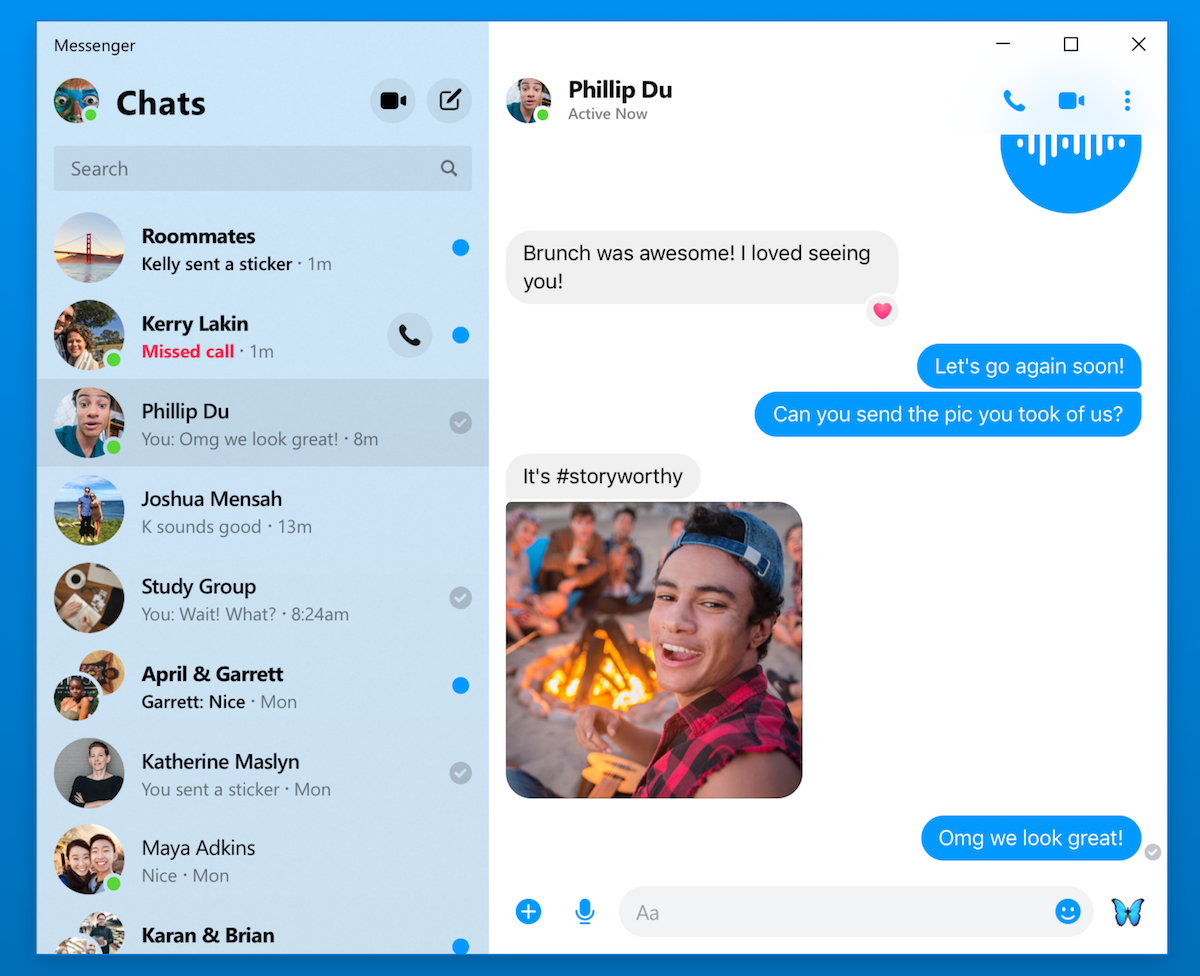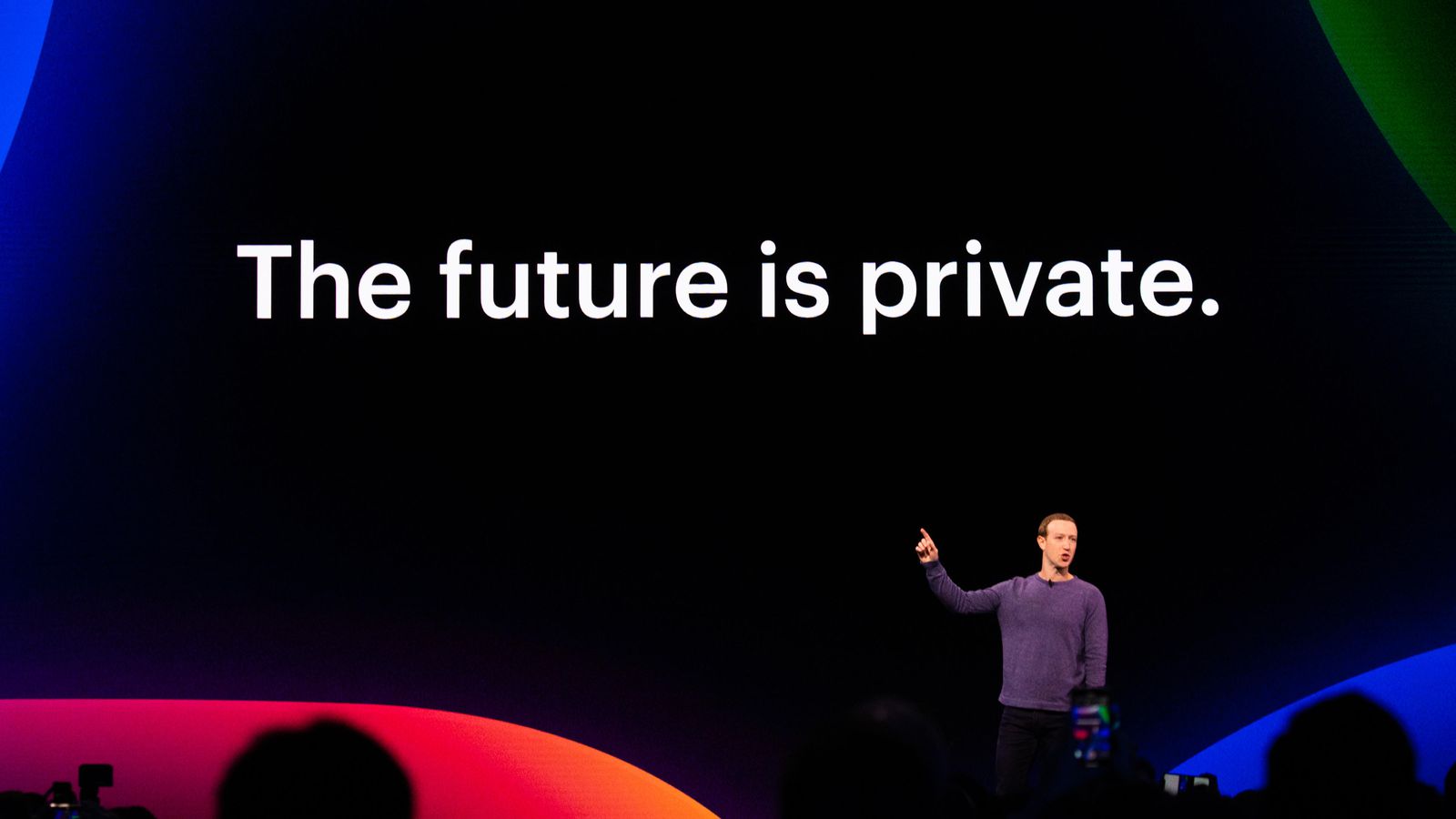1. A Community-Centric Facebook
Hand-in-hand with the company’s privacy-focused message at F8 was a reinforced vision of what Facebook has always purported itself to be–a place to bring people together. Facebook wants its platform to be a place where users can interact with their closest friends and join Groups based on their interests and hobbies, ensuring that they’re the ones in control of the content they see on their feed.
This is what Facebook wants its user base to hear, especially as the news feed becomes cluttered with untrustworthy news sources and cloying businesses. So how do marketers stay ahead of the curve?
One panel I attended showed some of the research Facebook has put into social media well-being, and finding out exactly what makes social media a positive or negative experience for users. Unsurprisingly, they found that interacting with acquaintances and passively browsing news feed content often created negative social media experiences, while seeing close friends and engaging in conversations (in comments or messages) created positive ones.
This just reinforces the importance of engaging content that causes conversations, to help businesses and marketers stay relevant in this ever-shifting Facebook “community,” while also making it clear that perhaps businesses need to adapt and find other ways to reach their customers than the news feed and pages. Which brings us to…
2. Messenger Wants Your Attention
Facebook has been putting more eggs into the Messenger basket for some time now, and it looks like they won’t be abandoning them anytime soon. Messenger received some new features, including a faster and more efficient mobile app and a new “friend screen” to let you see what your closest friends are up to on their Stories or statuses in one easy spot.
But clearly one of the biggest cheers of Zuckerberg’s keynote Tuesday morning was the announcement of Facebook’s long-awaited desktop app for Messenger, positioning themselves right behind Apple’s Messages in the private message space.
Fortunately, this is only good news for businesses. Easier access for users to the Messenger platform means more chances for chat bots and support services to reach customers. And with Facebook’s integration of Messenger bots into their lead generation advertising, there won’t be anymore excuses for not having a fully-formed Messenger marketing strategy.
3. A Complete Marketplace Experience
While Messenger may have gotten a handful of fancy new features, it’s Marketplace that’s getting the bigger update this year. Facebook and Instagram have dipped their toes into the shopping space through product catalog shops and product tagging, and Marketplace appeared poised to just be a better and more secure version of Craigslist. But this year’s F8 changed all of that.
Facebook Marketplace will now allow businesses to accept payments online and ship items to anywhere in the country, possibly creating a viable, free alternative to Shopify and Etsy shop-building. One panel I attended laid out how simple it was to create a seamless ads-to-commerce user journey through product catalogs. Facebook already has powerful catalog advertising functionality, so adding the ability to purchase and checkout all within Facebook could be a game-changer.
Businesses are still testing out the new features to see exactly how it might work for them going forward, and time will tell if it can carve out its own section of the ecommerce space. If nothing else, this all-in-one shopping experience is the next logical step for the rapidly-growing Marketplace experience.
4. Privacy, Privacy, Privacy
Privacy was the big talking point of the whole conference, but conspicuously absent from the keynotes and much of the ensuing panels was a clear vision of how this would all take place. Selling ads is Facebook’s lifeblood, but a more private platform just means less data for advertisers and a decidedly unclear future of what advertising will look like going forward. To truly make Facebook “private” would seemingly require a full top-to-bottom revamp. So just how worried should marketers be?
The answer: not very, for now. Facebook marketers have faced privacy and data concerns in the recent past, including GDPR and Safari’s “Intelligent Tracking Prevention” (ITP), but have come out the other end largely unscathed. Though if Facebook really is serious about their privacy promise, then future changes could be even bigger. Fortunately we know that Facebook values their advertiser dollars, even if they don’t explicitly talk about it during their PR-friendly keynote addresses. Even in a “private future,” there will always be room for ad spend.
5. The Only Constant is Change
Marketers can always expect to see tweaks and design changes across any advertising platform, and Facebook is no different. But while we may have come accustomed to seeing pop-ups on our Business Manager for new targeting features or layout changes, this year’s F8 made it clear that Facebook will continue to dip their toes in any service or sector they see fit.
Stories, Groups, Dating, Messenger, WhatsApp, Spark AR, and other Facebook ventures to come, ensure that marketers will always have some new platform or feature they will have to keep up with. Combine that with the aforementioned privacy focus and you have a marketing platform that’s destined to remain in flux.








